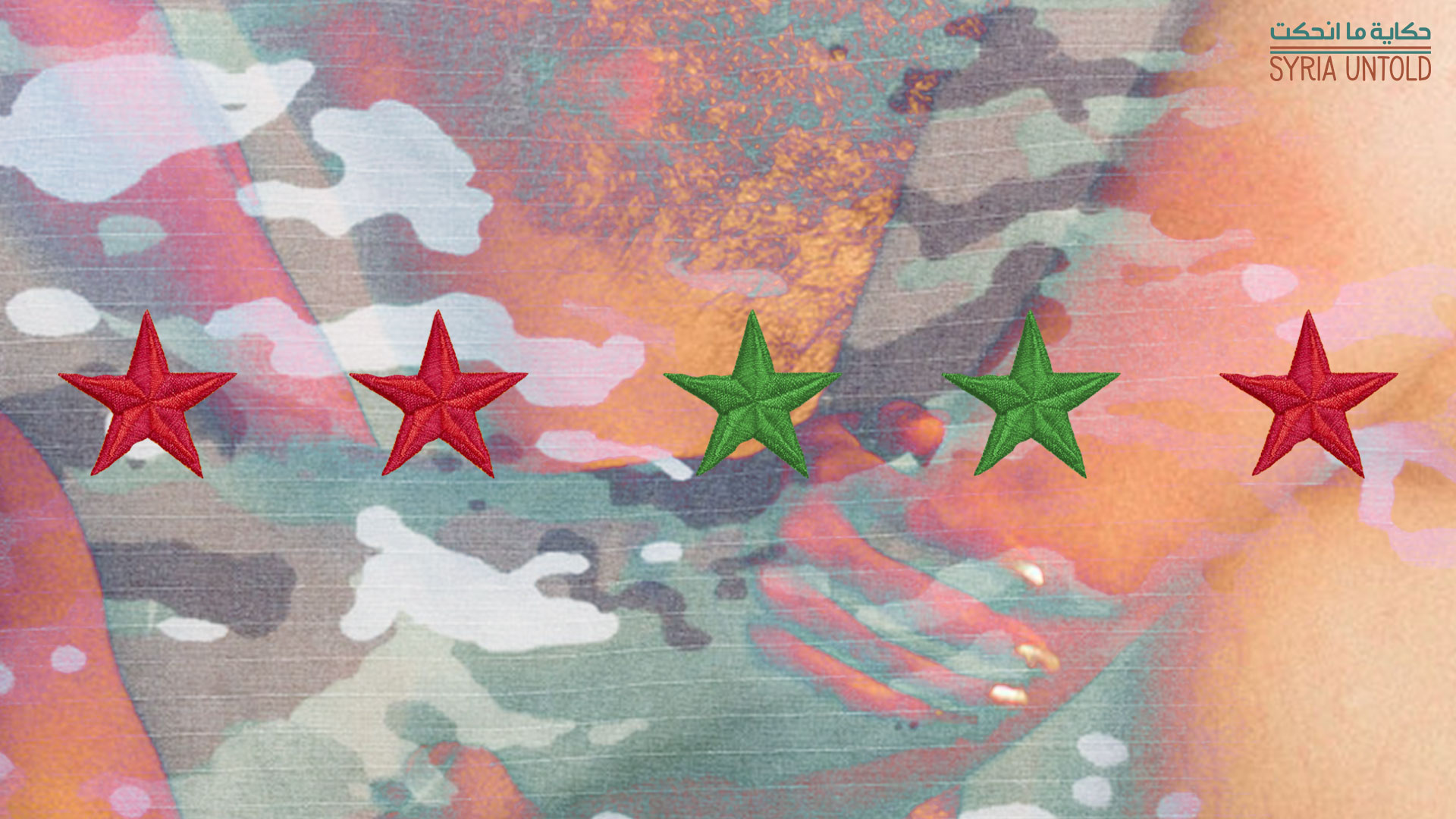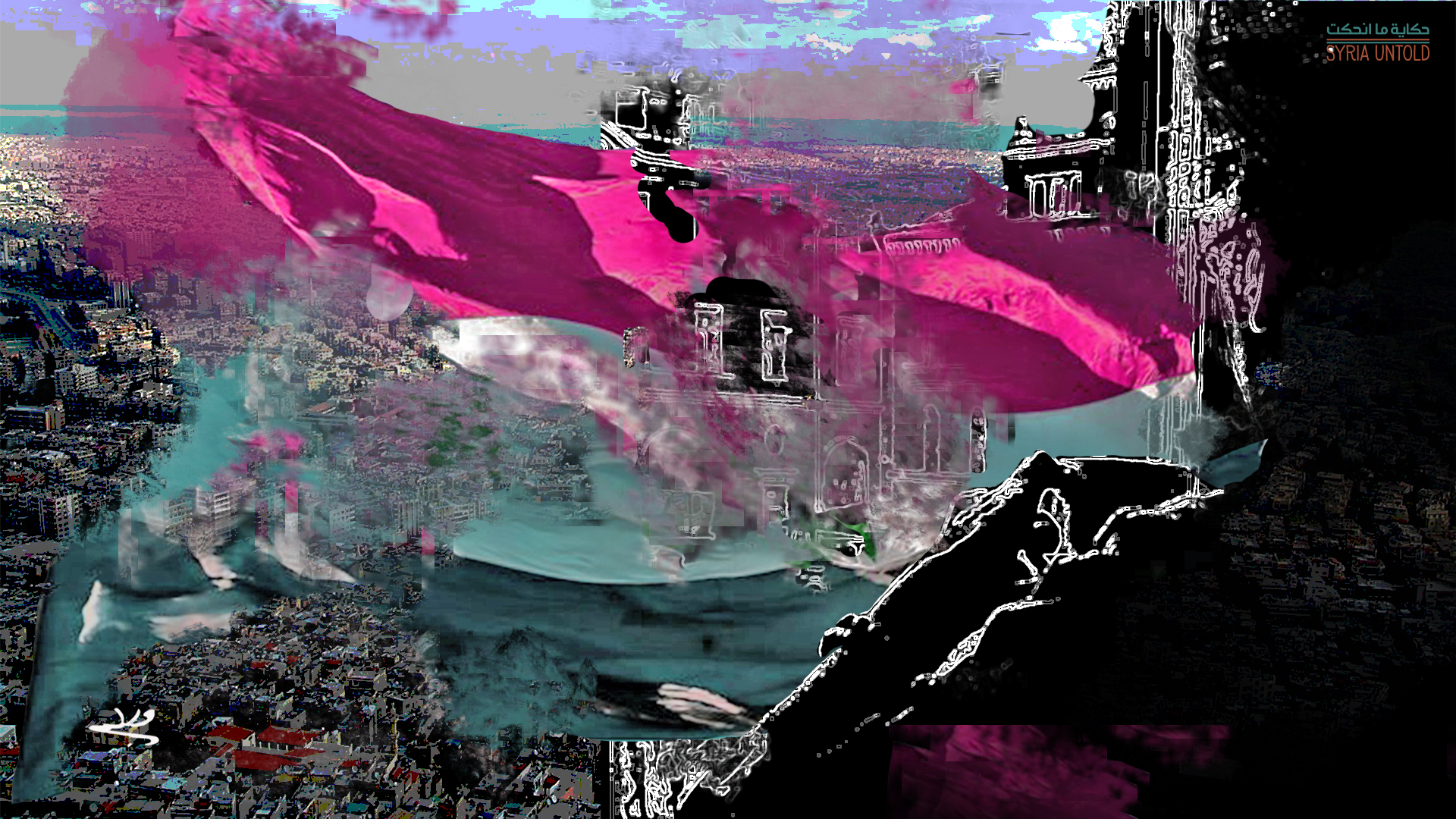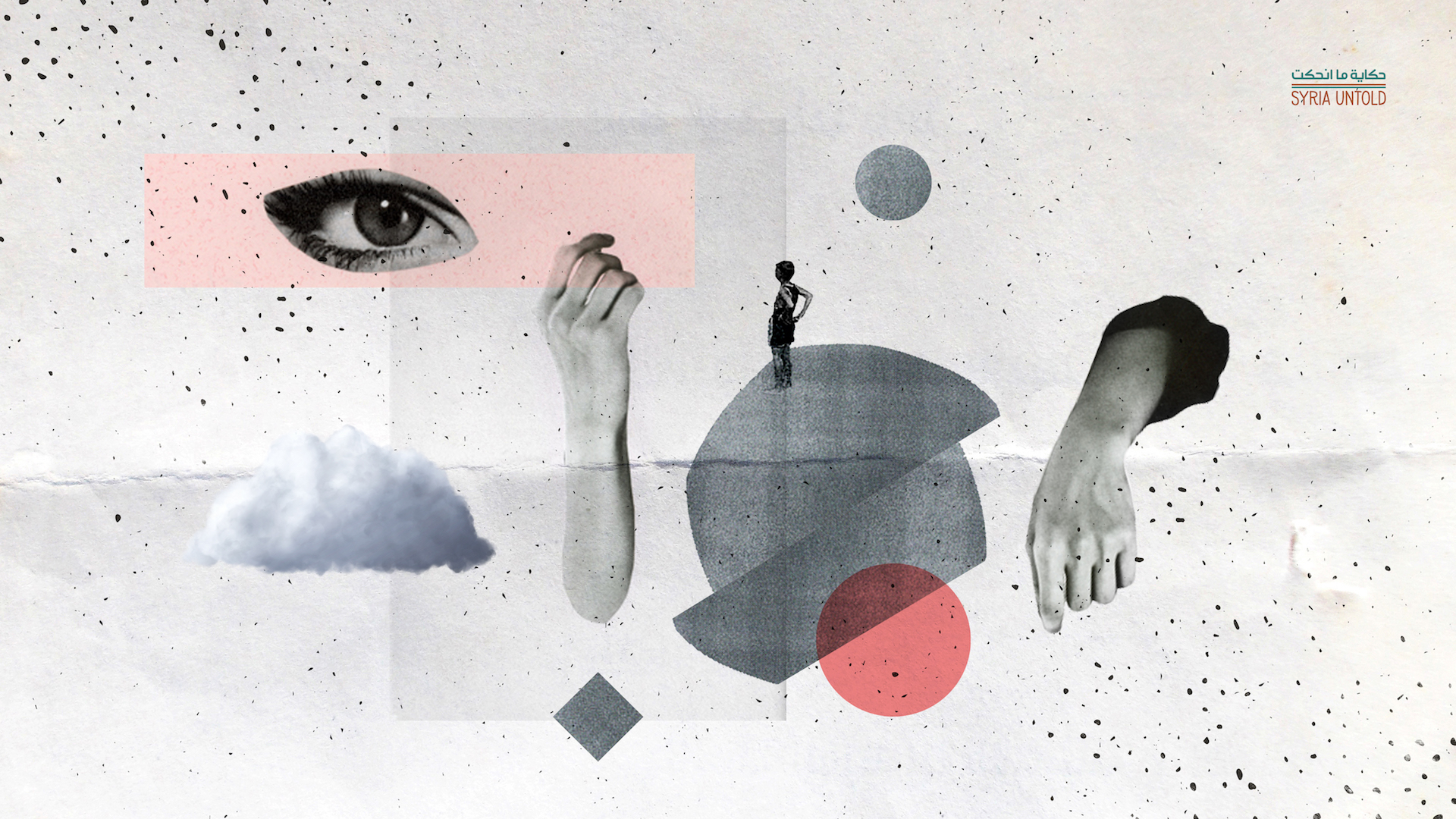This piece is part four of our series on LGBTIQ Syria, guest edited by Fadi Saleh and published with funding from Hannchen-Mehrzweck-Stiftung.
Distress and helplessness came over me as I read the news of the passing of Sarah Hegazi, the Egyptian LGBTIQ activist who died of suicide in Canadian exile after experiencing and escaping unbearable violence and abuse in her home country. She left behind one short letter, a testament to the cruelty of this world.
As someone working in the media sector, I read a lot of tragic news daily. But Sarah’s death was not just another piece of news that I could process easily; her final words were not just any words. Their impact was different. I felt rage and resentment towards this reality. In Syria, the news inspired waves of sympathy and solidarity among many Syrians in general, and Syrian LGBTIQ people in particular.
Solidarity with Sarah, and fear of a similar fate
Living and financial conditions are abysmal in Syria; the country is completely drained by a war that is still raging in its north, and LGBTIQ communities already face many psychological upheavals.
In the shadow of that flag
13 October 2020
Nonetheless, Sarah Hegazi’s death in June occupied center stage as the main topic of conversations between Syrian LGBTIQ people on social media. This is hardly surprising, for many of them identify with how Sarah suffered and struggled in a society that does not accept her. Authorities in her society arrested her for waving a pride flag at a Mashrou’ Leila concert in 2017, and tortured her for the so-called “crime.”
There was a collective fear that many Syrians might face the same fate, especially those who had just discovered and embraced their queerness, and were still struggling with their own identities, as well as their societies, families or religions. To many of them, Sarah’s death was a strong reminder of our continuous struggle and confrontation with the question: what is our fate in societies that continue to criminalize gender and sexual difference?
Many LGBTIQ people in Syria were overcome by fear because they could draw similarities between social and political circumstances in Syria and Egypt. They could relate to the suffering Sarah Hegazi went through in Egypt and the feelings of loneliness and estrangement she felt in exile. By the time of Sarah's death, she had suffered so much loss: that of family, friends, the feeling of belonging, of safety.
Notwithstanding this general atmosphere of fear and questioning sparked after Sarah’s death, there were also many direct, honest and very public reactions by members of the LGBTIQ community in Syria. Some insisted that her death was primarily a political issue and that LGBTIQ people worldwide must show solidarity, whether through writing something, sharing videos or changing their profile pictures on social media.
Others identified with Sarah’s suffering and spoke about the oppression they suffered not only at the hands of society at large, but also through the silence of the bystanders; those who could not relate and therefore did not feel any empathy; those who do not see LGBTIQ issues as a cause worth fighting for.
The revolution and breaking taboos
This public expression of one’s sexual or gender identity, or queer collective mourning for the loss of an LGBTIQ person was not always possible in Syria.
Prior to 2011, and during the first years of the revolution and war, speaking publicly about sexual matters was still a taboo on social media, and in traditional state media such as newspapers, television or radio, or at schools and universities.
Speaking about such issues was mostly confined to gatherings of friends who would meet either in closed spaces or in public places that were well-known to others in the LGBTIQ community (and hence marked as safe). Being with their peers, they expressed themselves more freely and conversed about various topics. Moreover, in such gatherings, many would take on the responsibility of transferring their knowledge about navigating life as a queer or gender non-conforming person, community codes of safety, where to meet people safely and how to protect themselves from being kidnapped, robbed or arrested by the police.
LGBTIQ Syrians are an integral part of the larger social fabric and are thus party to these efforts. In this sensitive phase, it is important to continue spreading awareness of sexual and gender issues among LGBTIQs and the larger Syrian society.
Out of these social dynamics, new ways of community-building emerged and developed among LGBTIQs. At the beginning of this decade, especially after the revolution started, many of us gays and lesbians in Syria were eager to gain more acceptance in Syrian society, be decriminalized and have our human rights recognized.
As the war escalated and more Syrians fled to neighboring countries and Europe, there was more rapid and direct access to information through social media. Many gay and lesbian Syrians at various international platforms, as well as others, started to work with humanitarian and activist organizations. These factors slowly changed the ways we talked about gender and sexual rights discourse.
This shift in discourse could be seen strongly and concretely with the emotional and intellectual tensions that the news of Sarah’s death caused in the Syrian virtual sphere.
Strategies for rebellion: A queer reading of the Syrian revolution
06 October 2020
My childhood friend, now a ghost
18 September 2020
Discussions went beyond the mainstream topics that occupied the virtual sphere for years—such as Syrian LGBTIQ refugees and the Islamic State’s violence against alleged gay men—and it started to highlight a wider array of issues: visibility politics, coming out of the closet to family and friends or on social media, security in online and public spaces, the place of LGBTIQ issues and rights discourses in Syria, mental, sexual and physical health, the ability to do political work on the ground and build alliances outside the LGBTIQ community, and updating our knowledge and information on the most recent and acceptable terms related to gender and sexuality.
Today, a new discourse on Syrian LGBTIQ issues is emerging beyond “closed” gatherings and in more public spaces, both in Syria and globally.
Solidarity and expanding alliance circles
This new discourse did not only target LGBTIQ people, but also new generations of people from outside the community, especially those who work with queer people in cultural and artistic scenes. This has led many Syrians involved in these scenes to change their views on homosexuality and to see it not as a sickness or a choice, but as an essential part of the personal identities that people love, care and respect.
This could be seen in the many reactions by artists and intellectuals who spoke out in solidarity with Sarah Hegazi, showing their commitment to supporting personal freedoms and the right to express one’s identity without fear. Some high-profile artists changed their profile pictures or shared rainbow flags on their personal media accounts, undeterred by the potential backlash this might cause them in the region.
Many LGBTIQ people in Syria were overcome by fear because they could draw similarities between social and political circumstances in Syria and Egypt. They could relate to the suffering Sarah Hegazi went through in Egypt and the feelings of loneliness and estrangement she felt in exile.
In fact, many artists expressed their sympathy with Sarah Hegazi primarily as a humanitarian issue. They saw her suffering as an example of how Arab governments oppress and strip LGBTIQ people of their personal freedoms, causing them considerable social and psychological damage and pushing them to flee into exile away from their homelands, families and societies.
For example, Farah Yousef, a Syrian singer famous for her participation in the talent show Arab Idol, expressed her sympathy and solidarity with Sarah on her Twitter account:
“May she rest in peace … I wish she could have been stronger … or at least surrounded by loving people who could have given her strength … we are not responsible for the backwardness in this dirty world, and nothing should push us to our limits and make us give up this way … the world is full of ugliness, but it is also filled with goodness and beauty and we should never give up # SarahHegazi.”
This tweet caused a storm of negative comments among her followers, both Syrians and others from the Arab world. Angered by such comments, she pleaded with public figures to prevent such public spaces from being filled only with hate and ignorance, and called on her fans to be more understanding of Sarah Hegazi, instead of bullying and judging her. This kind of allyship from a public figure, and her persistence despite all the backlash, gives us hope that questions of personal freedoms have not been forgotten, but have become important and relevant for even more parts of Syrian society.
Syrian LGBTIQs: What’s next?
Unfortunately, the political, economic and day-to-day living conditions in Syria are still difficult. With suffering surrounding Syrians from all sides, many people protest that speaking about gender, LGBTIQ issues or feminism is a luxury that Syrians do not have the capacity to “handle” at the moment.
It is true that there has been less investment in the political change and rights discourses in Syria. But we as Syrians must not give up on the project of creating and solidifying a political consciousness of our rights, on the one hand, and an awareness of our collective social circumstances and the need for social solidarity on the other.
LGBTIQ Syrians are an integral part of the larger social fabric and are thus party to these efforts. In this sensitive phase, it is important to continue spreading awareness of sexual and gender issues among LGBTIQs and the larger Syrian society, whether through traditional or social media, with the latter currently being the more viable option as it is not strictly state-owned, has greater outreach and is safer for LGBTIQ people.
Working on the ground, while necessary, remains difficult at this stage, because it requires that activists have structures that protect them. These structures do not exist in Syria under the current regime. What could be viable at the moment, however, is developing mental health support networks for those who need them, and psychological and medical support for transgender people whose inability to speak publicly about their needs or to come out as transgender will continue to cause psychological damage if such support networks remain unavailable or inaccessible.
LGBTIQ Syrians need more documentation of the violations against their human rights, which occur daily in the name of law, tradition and religion. What’s more, these violations happen away from social media and the tweets of activists who see Syria only as war, destruction and an exhausted journalistic topic that does not warrant the same attention it received in prior years.
As they continue to live in a hypocritical, so-called “Eastern” society that claims morality while turning a blind eye to all the violence its people experience, LGBTIQ Syrians are left with no room to dream of a better future. As a result, the hopes of many of them become tied to migration or flight to a country where they can live and express themselves freely without fearing for their lives.
Of course, these hopes are an expression of the helplessness of our situation in the here and now, and while migration might save us from the harshness of our current reality, it will introduce new fights and hurdles. We will be confronted with exile and homesickness, the difficulty of being away from family and friends, and our unprocessed experiences, histories and traumas as queer people, most of which we survived and coped with through continuous dissociation.
Between staying and leaving, homeland and exile, identity and societal norms, freedom and state oppression, we need a space in our imaginings of a future Syria that is not tied to the excruciating pain of these binary choices; one that protects gender and sexual freedoms and the rights of the LGBTIQ community, and that remains a safe space for anyone who experienced or is still experiencing the pain wrought on Sarah Hegazi.
*The author has requested a pseudonym to protect his identity.







